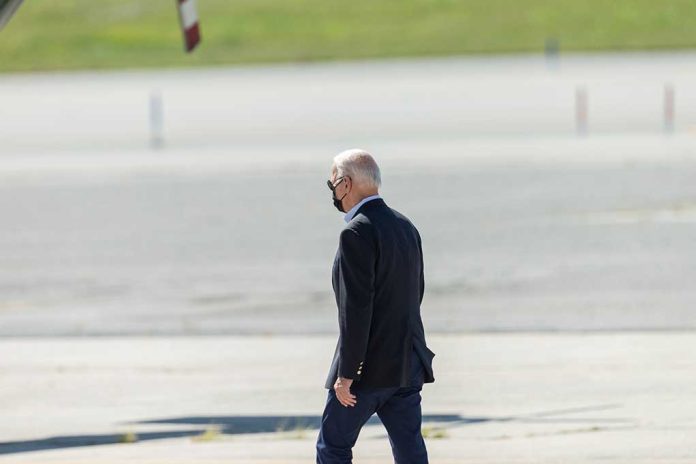
In a critical meeting in Germany, President Joe Biden and European leaders discussed strategies for providing long-term support to Ukraine amidst ongoing conflict with Russia.
At a Glance
- Biden met with European leaders to discuss continued support for Ukraine as he prepares to leave office.
- NATO partners aim to bolster Ukraine’s defense without direct involvement in the conflict.
- The U.S. election outcome could affect international support strategies for Ukraine.
- Biden received Germany’s highest honor for his unwavering support of NATO and Ukraine.
High-Stakes Deliberations in Germany
In a pivotal gathering in Germany, President Joe Biden met with key European leaders including German Chancellor Olaf Scholz, French President Emmanuel Macron, and UK Prime Minister Keir Starmer. These discussions focused on fortifying Ukraine’s defense mechanisms in light of its ongoing struggle with Russia. Biden emphasized the importance of NATO enhancing Ukraine’s defense posture, urging allies to maintain support regardless of future shifts in U.S. foreign policy.
Biden’s visit underscored the need for unified transatlantic support as his presidency draws to a close. With his departure set for January, Biden urged European allies to persist in their backing of Ukraine. His engagement also sought to reassure European partners of lasting American commitment beyond his term, aiming to sidestep potential disruptions caused by upcoming U.S. elections.
International Dynamics and NATO’s Role
NATO’s role in the Ukraine conflict remains a critical discussion point, with Germany affirming its support for Ukraine while ensuring NATO’s non-involvement in combat. Chancellor Scholz stated, “We are supporting Ukraine as powerfully as we can and at the same time we are making sure that NATO does not become a party to the war, so that this war does not turn into an even bigger catastrophe.”
Ukrainian membership in NATO remains complicated by issues of territorial integrity and the lack of unanimous agreement among member states. Russian President Vladimir Putin demands that Ukraine never join NATO as part of his conditions for peace, complicating the geopolitical landscape further. As the U.S. and its allies continue to refuse Ukraine’s requests for long-range weapons, diplomatic tension persists.
Potential U.S. Election Impact
As the U.S. presidential election looms, potential shifts in foreign policy under Democratic nominee Kamala Harris or Republican nominee Donald Trump are significant. Biden, during his talks, focused on security rather than domestic election politics, but expressed concerns about the return of Trump potentially diminishing U.S. military support for Ukraine.
During the summit, Biden reaffirmed his commitment to assisting Ukraine through a challenging winter, highlighting a proposed $50 billion international loan package to bolster Ukraine’s economy and infrastructure. Such plans seek to instill confidence among European allies and reinforce the West’s strategic objectives amid Russia’s aggression.







